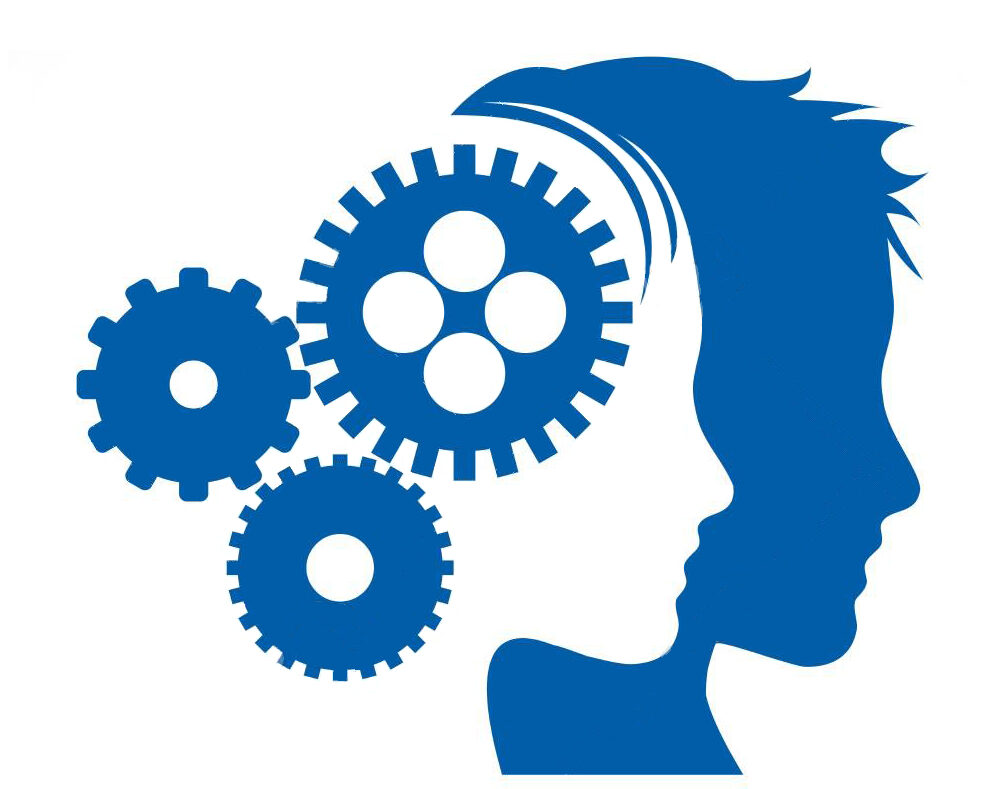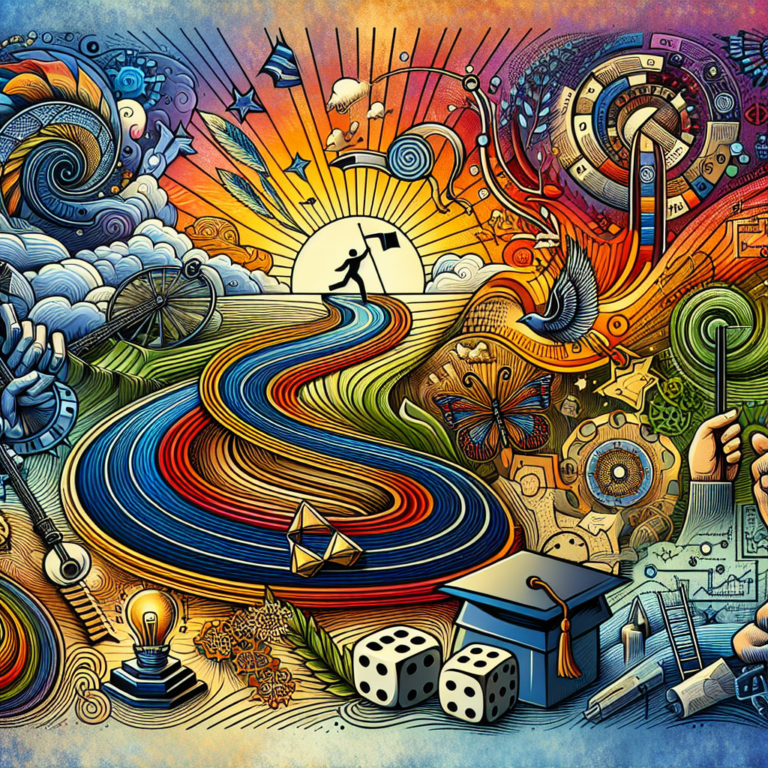Imagine a world where our lives are predetermined by an invisible force, where every decision we make is merely an illusion. Then picture a world where we have complete control over our own destiny, where our choices shape the course of our lives. These two concepts, fate and free will, have long been at odds with each other, constantly battling for dominance in the human mind. In this thought-provoking article, we explore the eternal struggle between fate and free will, examining how these opposing forces influence our lives and ultimately shape our understanding of the world around us.
Defining Fate and Free Will
Differentiating Fate and Free Will
When discussing the concepts of fate and free will, it is important to understand the fundamental differences between the two. Fate refers to the belief that events are predetermined and that individuals have little, if any, control over the outcomes of their lives. In contrast, free will is the notion that individuals possess the power to make choices and decisions that shape their lives.
Historical Perspectives on Fate and Free Will
Throughout history, philosophers and theologians have contemplated the nature of fate and free will. In ancient Greece, for example, the idea of fate was closely tied to mythology and the belief in a predetermined path set by the gods. Conversely, philosophies such as Stoicism emphasized the role of reason and personal responsibility, suggesting that one could overcome fate through virtuous actions.
Modern Philosophical Perspectives on Fate and Free Will
In modern philosophy, the debate surrounding fate and free will has evolved in response to advances in science and the growing complexity of human understanding. Some philosophers argue for determinism, positing that all events, including human actions, are ultimately governed by prior causes. Others maintain a belief in indeterminism, asserting that certain events, particularly those involving human agency, are not determined and can be influenced by free will.
The Coexistence of Fate and Free Will
The Paradoxical Nature of Fate and Free Will
The tension between fate and free will arises from the seemingly contradictory nature of these concepts. On one hand, fate suggests a lack of control, while free will implies agency and autonomy. Yet, upon closer examination, it becomes evident that these two ideas can coexist and even complement each other.
The Strong Determinism Argument
Those who advocate for determinism argue that all events, including human actions, are causally determined by preceding factors. This position posits that free will is illusory, as every choice and decision we make is ultimately the result of preceding causes beyond our control. In this interpretation, fate reigns supreme, and our lives are merely a product of an intricate web of causes and effects.
The Compatibility of Fate and Free Will
Contrary to strong determinism, some philosophers propose that fate and free will are compatible. They suggest that while certain aspects of our lives may be predetermined, we still possess the ability to make choices and exercise our free will within the boundaries set by fate. In this view, rather than being mutually exclusive, fate and free will work in tandem, shaping and defining our experiences.
The Influence of Fate on Human Lives

Predestination and Predetermination
Many religious traditions incorporate the notion of predestination or predetermination, which implies that our lives are already planned and predetermined by a higher power. In these belief systems, individuals may perceive their actions as guided by fate, leading to a sense of resignation or surrender to a predetermined path.
Role of Providence in Religious Beliefs
Within religious contexts, the concept of providence often intersects with notions of fate. Providence refers to the belief that a divine power is actively involved in guiding and influencing the events of the world. This belief can provide individuals with a sense of comfort and reassurance, as they trust in the benevolent workings of a greater plan.
Cultural and Societal Perceptions of Fate
Beyond religious beliefs, ideas of fate influence cultural and societal perspectives. Some cultures place a significant emphasis on the role of destiny and believe that one’s station in life is predetermined. This deeply ingrained belief can shape individuals’ expectations and attitudes, influencing their actions and decisions.
The Role of Free Will in Human Agency
The Concept of Free Will
Free will is central to the concept of human agency, highlighting individuals’ capacity to act and make choices independent of external influences. It suggests that we have the power to shape our lives through the decisions we make, giving us a sense of autonomy and personal responsibility.
Autonomy and Responsibility
Free will and autonomy are intrinsically linked. The ability to exercise free will implies a level of control over our actions, allowing us to take responsibility for the consequences of those choices. This responsibility extends beyond individual actions to the impact we have on others and the world around us.
Free Will and Moral Decision-Making
Free will also plays a crucial role in moral decision-making. It grants individuals the freedom to discern between right and wrong, and to act in accordance with their moral compass. When faced with moral dilemmas, free will allows us to evaluate the potential consequences of our actions and make choices based on ethical principles.
The Battle between Fate and Free Will in Literature

This image is property of images.pexels.com.
Famous Literary Works Exploring the Theme
Literature has long been a medium for examining the interplay of fate and free will. Numerous classic works delve into this theme, showcasing the struggles and conflicts faced by characters as they navigate the boundaries of fate and the exercise of free will. From Shakespeare’s “Macbeth” to Sophocles’ “Oedipus Rex,” these works captivate readers by delving into the complexities of human agency within the context of predetermined circumstances.
Authors’ Perspectives on the Dilemma
Authors bring their own perspectives and interpretations to the debate surrounding fate and free will. Some may emphasize the power of choice and the potential for individuals to shape their destinies, while others explore the constraints of fate and the limits of free will. Through their narratives, authors invite readers to contemplate the complexities and nuances of these intertwined concepts.
Scientific and Psychological Perspectives on Fate and Free Will
Determinism and Causal Chains
From a scientific standpoint, determinism posits that every event, including human behavior, can be explained by preceding causes. This view sees life as a series of causal chains, with each effect directly linked to a prior cause. However, contemporary science acknowledges the existence of complex systems and factors that can introduce unpredictability and influence human actions, blurring the lines between causality and choice.
Quantum Indeterminacy and Non-Determinism
At the forefront of scientific inquiry is the field of quantum physics, which challenges traditional deterministic perspectives. Quantum indeterminacy suggests that certain events occur randomly and cannot be predicted with certainty. This introduces an element of non-determinism into the scientific understanding of cause and effect, offering a potential opening for the existence of free will.
Psychological Experiments on Decision-Making
Psychology delves into the complexities of decision-making processes, shedding light on the interplay between fate and free will at an individual level. Research explores factors such as cognitive biases, subconscious influences, and environmental conditions that can shape our choices. While these factors may limit the extent of our free will, they also highlight the potential for self-awareness and intentional decision-making.
Effectively Balancing Fate and Free Will
Accepting the Existence of Both Concepts
To strike a harmonious balance between fate and free will, it is essential to acknowledge the coexistence of these concepts. Embracing the belief that certain aspects of life may be predetermined allows for a sense of acceptance and adaptability, while recognizing the power of free will empowers individuals to actively shape their lives.

Striving for Personal Growth and Adaptability
Embracing the belief in free will encourages personal growth and adaptability. It allows individuals to take ownership of their choices, learn from experiences, and make intentional decisions that align with their values and aspirations. Recognizing that both fate and free will play a role in our lives can lead to a more dynamic and fulfilling existence.
Finding Harmony and Meaning in Life
Balancing fate and free will also involves finding harmony and meaning in life. Accepting the existence of events beyond our control can alleviate feelings of frustration and helplessness, allowing individuals to focus on pursuing personal growth and pursuing goals aligned with their values. Simultaneously, exercising free will enables individuals to forge their own path, leading to a sense of purpose and fulfillment.
Cultural and Historical Implications of the Fate vs Free Will Debate
Influence on Legal Systems and Punishment
The debate between fate and free will has far-reaching implications for legal systems and concepts of punishment. If individuals are believed to lack free will and full responsibility for their actions, criminal justice systems may view offenders as products of circumstance rather than moral agents deserving punishment. Conversely, a belief in free will may necessitate holding individuals accountable for their choices, shaping legal frameworks accordingly.
Impact on Concepts of Justice and Fairness
The question of whether fate or free will guides human actions directly impacts concepts of justice and fairness. If fate is seen as the driving force behind individual choices, notions of fairness may revolve around equal distribution of predetermined opportunities. On the other hand, a belief in free will may require a more merit-based understanding of justice, focusing on individual agency and the consequences of one’s choices.
The Societal Need for a Resolution
The ongoing debate between fate and free will reflects a fundamental human desire to understand our place in the world and the extent to which we are responsible for our actions. Society grapples with the implications of fate and free will in various arenas, from legal systems to ethical frameworks. Exploring and resolving this debate can provide a foundation for establishing more just and equitable systems that account for personal agency and external influences.
The Importance of Personal Perspectives on Fate and Free Will
Individual Beliefs and Values
Personal perspectives on fate and free will are shaped by diverse factors, including cultural upbringing, religious beliefs, and personal experiences. These individual beliefs and values significantly influence how individuals perceive their capacity for agency and responsibility in the face of external circumstances.
The Psychological Effects of an Adherence to Fate or Free Will
Choosing to adhere strongly to fate or free will can have profound psychological effects. Firmly believing in predetermined outcomes can lead to a sense of resignation, complacency, or even fatalism. Conversely, a strong belief in free will can bring about feelings of empowerment, personal accountability, and a proactive approach to life’s challenges.
The Search for a Personal Balance
Each individual must navigate the complexities of the fate versus free will debate and find a balance that resonates with their personal beliefs and values. This search involves introspection, critical thinking, and an open-mindedness to consider various perspectives. Striving to achieve a personal equilibrium between fate and free will can lead to a more authentic and fulfilled existence.
The Ongoing Philosophical Debate: Fate vs Free Will
Contemporary Scholars and Thinkers’ Opinions
The debate between fate and free will continues to attract the attention of contemporary scholars and thinkers. Various perspectives emerge from diverse fields such as philosophy, psychology, and neuroscience. Some scholars argue for a middle ground, suggesting that both fate and free will exist simultaneously, while others propose radical reinterpretations of these concepts.
Modern Philosophical Arguments
Modern philosophies contribute fresh arguments to the fate versus free will debate. Some philosophers propose that free will lies in our ability to shape our response to predetermined events and find meaning within them. Others champion the idea that free will is an emergent property of complex systems, providing a path for individual agency even amid deterministic factors.
Current Philosophical Discourse
Philosophy is a dynamic field, constantly evolving to incorporate new ideas and perspectives. The ongoing philosophical discourse surrounding fate and free will invites examination of the conceptual frameworks through which we perceive and navigate the world. This discourse helps shape our understanding of human nature, consciousness, and the interplay between individual agency and external forces.
In conclusion, the debate between fate and free will is an integral part of human existence, influencing our perceptions, choices, and understanding of the world. While different perspectives on this age-old dilemma persist, acknowledging the coexistence of fate and free will can provide a foundation for personal growth, societal harmony, and a more nuanced appreciation of the complexities of human agency and the pursuit of meaning in life.






